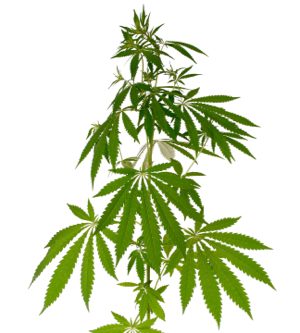Farm gate cannabis shops open

Selling produce from a farm gate is nothing new for many farmers, but they soon will be joined by their cannabis-growing neighbours.
The inability to sell cannabis from the farm gate has been a sore spot for cannabis producers who want to supply more boutique types of the product from the farm.
Why it matters: The first farmgate sales licence issued for cannabis may open new market and public education opportunities for producers.
Thrive Cannabis got the green light to open the first farmgate cannabis shop in Canada on 4-20, the April 20 unofficial day of cannabis celebration and the anniversary of its legalization in Canada three years ago.
“It’s a great day to celebrate that we had achieved that milestone of being first through the licensing process,” said Robyn Rabinovich, Thrive’s vice-president of strategic initiatives.
Canadian cannabis cultivators have lobbied for the right to sell products on-site from production facilities since 2019. By Jan. 29, 2021, the Ontario cannabis regulator had received 14 retail operation requests for farmgate sales. Six were approved, with Thrive the first to be granted a licence.
Rabinovich said customers have travelled from surrounding cities to the 180-acre Jarvis location to shop, even though they are limited to a click-and-collect format.
An unforeseen benefit is a spike in local pride, she said, especially now that people have connected Thrive to its signature brands, Greybeard and Being.
“To see how proud they (locals) are that level of quality, product and reputation we have on the street comes from a facility in their community has been unexpected,” she said.
While business is brisk, Rabinovich said it was equal parts exhilaration and nerve-wracking stress to be the first facility in Canada to open a farmgate retail operation.
Like anything to do with cannabis, there’s a significant approval process and everything has to go through the Alcohol and Gaming Commission of Ontario and the Ontario Cannabis Store (OCS).
Mariwell, a small licensed producer of boutique cannabis on the shores of Lake Erie, is entering its second harvest season and is paying close attention to Thrive’s opening.
The operation is researching the cost of building a shop, security and vault division so it can obtain a licence to serve consumers more directly as soon as possible.
“We’ve seen the wine tours out in the Leamington, Harrow and Amherstburg area,” said Theresa Robert, Mariwell vice-president of finance. “This could be part of the initiative for the Talbot Trail (tourism route) to keep people moving in our area, in a recreational market.”
Robert said the Chatham-Kent municipal government and the Wheatley community have been supportive of their business.
Farmgate sales are not profit-driven because of price regulation but provide opportunities for greater transparency, inclusion and one-on-one consumer education, Robert said.
Daffyd Roderick, OCS senior director of communications and social responsibility, said eligible licensed producers are permitted to operate one farmgate store at an Ontario production facility and are subject to the same requirements as other authorized cannabis retail stores.

photo:
Getty Images
The OCS is the exclusive wholesaler to authorized retailers. Retail stores, including those located at the farmgate, can only sell cannabis bought through the OCS.
Products meant for broader distribution must first ship to OSC, but products sold on site remain in the vault until processed.
While products in farmgate shops will be fresh, the price points are competitive to dispensaries.
“We’re not fighting for pieces of the pie. We’re still making the pie,” she said.
The evolution of farmgate cannabis shops is in its infancy but Thrive compares its development to that of a sommelier exposing rookie wine drinkers and wine connoisseurs to the nuances of individual vintages. Rabinovich sees “budtenders” using similar language to take consumers on that journey.
“Everything from terroir to aroma, to that buttery feeling that you get in your mouth after a certain glass of wine,” she said. “There are very much similar elements in the products we are creating, and that’s part of the deeper level of education we are about to give them at the end of the day.”
Source: Farmtario.com

